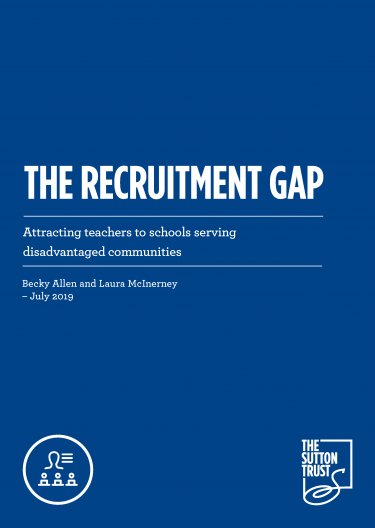Report Overview
It has long been recognised that schools serving disadvantaged communities are more likely to be staffed by teachers without qualified teacher status, with fewer years of experience and by non-specialist science and maths teachers. Inequality in access to suitably qualified, high quality teachers is likely to be an important contributor to the attainment gap that exists between students who come from disadvantaged families and those who do not.
In this report, we analyse survey responses from over 7,000 primary and secondary school teachers in order to expand our understanding of how teachers feel that recruitment difficulties and teacher shortages affect their school. Surveys were conducted through Teacher Tapp, an app that asks teachers in state and independent sectors three questions a day. ‘The Recruitment Gap’ is authored by Teacher Tapp’s founders, Professor Becky Allen and Laura McInerney.
